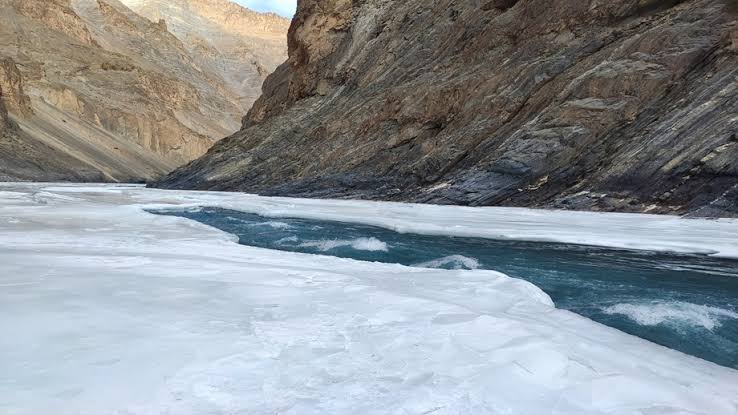
As the carbon emission continues to increase, the melting of glaciers has gained a pace in Jammu Kashmir while as the experts assert that the Union Territory has lost nearly “30 per cent of glaciers in the past 60 years and warned that 70 per cent of them will recee by the end of this century if the prevailing pace continues.”
Reports have suggested that the melting of glaciers will lead to water scarcity in the near future. However, the experts stated that becoming carbon neutral was the only solution to preserve glaciers.
“There are 18000 glaciers in Jammu, Kashmir and Ladakh, but all of them are melting. The glaciers are melting in the entire Himalaya including J&K. In the past couple of years, the melting of glaciers has increased. The record melting of glaciers was witnessed last year and this year it was a bit low comparatively than previous year,” Professor Shakil Romshoo, an earth scientist and Vice Chancellor of Islamic University of Science and Technology (IUST), told the news agency—Kashmir News Observer (KNO).
He said the record melting of glaciers is the outcome of less snowfall in winters, especially the warm February and March months. “The melting of snowfall has increased as the temperature remains usually high in February, March and the heat wave starts in April,” he said.
“It would be difficult to say exact loss of glaciers as the glaciers are melting at different pace, but as per the research, we have lost 25-30 per cent of glaciers in the last 60 years. If it continues to melt at a similar pace, we will be losing 70 per cent of the glaciers by the end of this century as the melting of glaciers has significantly increased,” he said
He further added that “we are losing 18-20 meters of a glacier every year.”
Another expert, Dr Irfan Rashid, who is working as Assistant Professor at Department of Earth Sciences University of Kashmir, said that a research has been done, which states that Kashmir’s biggest glacier, Kolahoi glacier has melted around 25 per cent since 1960’s. “From 1962-2022, it has melted around 25 per cent. It has been receding 35 meters every year,” he said, adding that Kolahoi glacier is the biggest glacier of Kashmir, and at the same time, is the fastest melting glacier as well.
The other glaciers of J&K and Ladakh are also melting, Dr Irfan Rashid told KNO, adding that according to research there will be a 4-7 degrees increase by the end of this century, and therefore the melting cannot be stopped.
“Until and unless we become carbon neutral, nobody can stop the melting of glaciers. The carbon emission is increasing, global emission is also high, and in future it will be increased as per the study, but becoming carbon neutral only could help in stopping the melting of glaciers,” he added—(KNO)